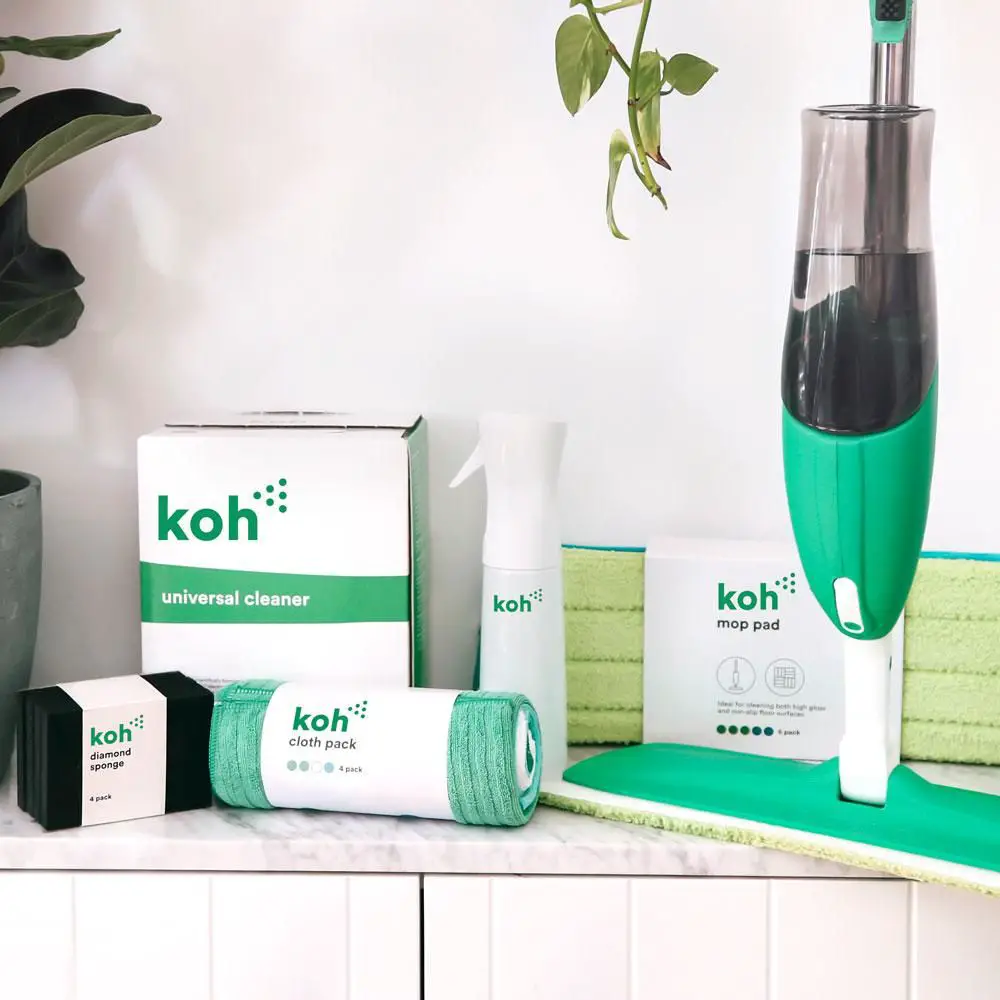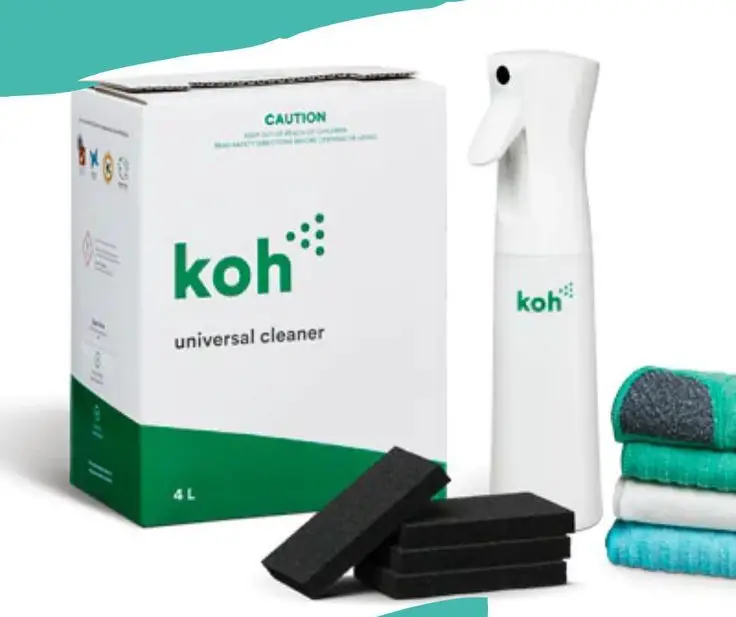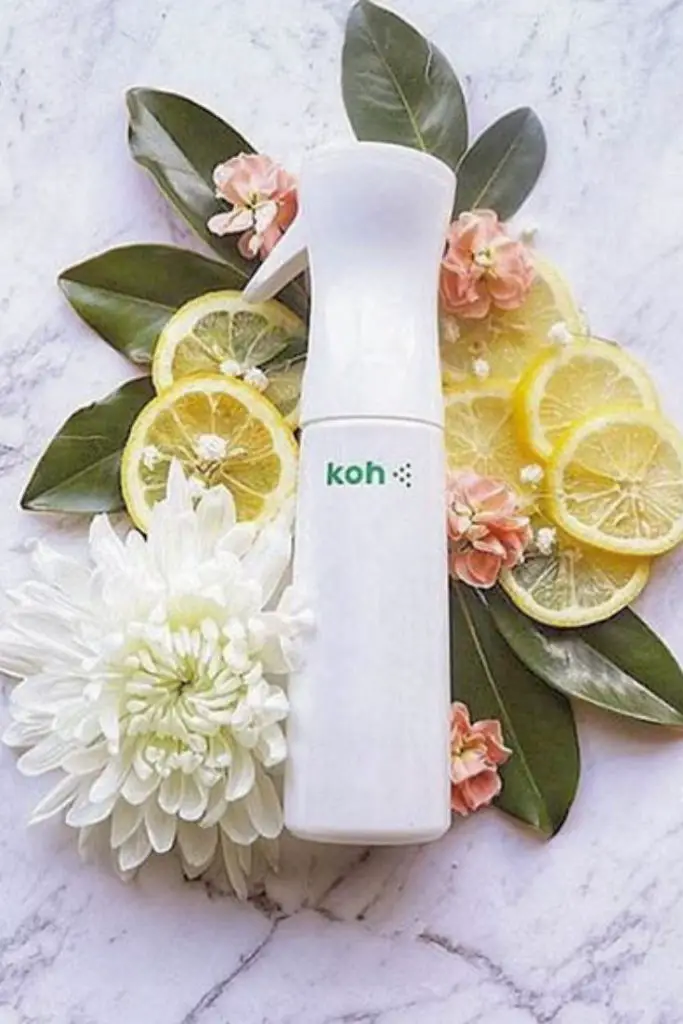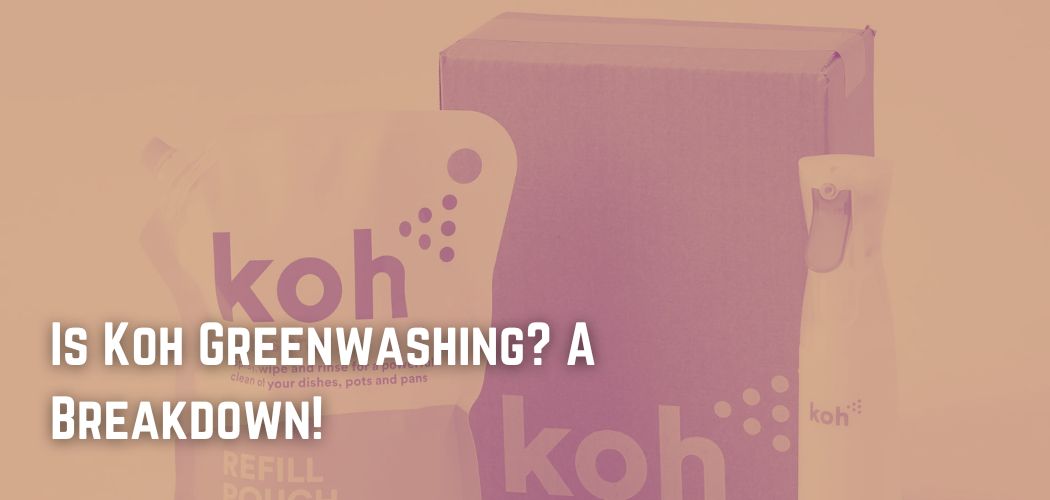The Koh company sells a universal cleaner that can be used on everything from shower screens to marble benchtops, as well as essential oils, surface protectors, and a range of other products.
It was designed to eliminate the needless labor involved in conventional cleaning and to provide consumers with a simple cleaning solution for their entire homes.
Koh is a cleaning method that can clean 20 various surfaces, so you do not need a different cleaning product for each surface in your home.
Many conventional cleaning products rely on powerful chemical compounds to decompose and remove dirt, but Koh goes back to basics.
Instead, the focus is on the basic two-ingredient formula of the Universal Cleaner, which, in conjunction with chosen accessories, is effective against filth, grease, and grime.
The technique was developed to reduce plastic waste. The 4L Universal Cleaner and refillable Atomiser from Koh eliminate the need for ten 400ml trigger sprays.
It benefits both humans and the environment. Their Universal Cleaner is also suggested by the Sensitive Choice Program of the National Asthma Foundation and is GECA-certified.
Is It Ethical?
Individual perspectives and beliefs determine Koh’s ethical status, hence there is no straightforward response to this topic.
However, Koh’s actions and decisions are guided by a few fundamental ideals, including respect for human rights, the environment, and cultural heritage.

Koh also seeks to generate social and economic opportunities for the areas it serves, which is a crucial aspect of its ethics. For instance, Koh has participated in a number of programs focused on enhancing local education and healthcare.
Whether or not Koh is deemed ethical ultimately depends on your perspective. Others may admire the company’s commitment to social responsibility, despite the fact that others may find its methods repugnant.
What is most important is that Koh is receptive to criticism and attentive to the needs of its stakeholders.
GECA Certified
Adam Lindsay, the creator of Koh, has always placed a premium on establishing a business with a positive impact on both people and the earth. Since the company started up in 2016, Koh has worked with GECA for two very important reasons.
First, for its clients. It has always been important for them to back up their claims of being eco-friendly with third-party certification that customers can trust.
Second, they are pleased to have strong formulation criteria in place to ensure that their present and future home cleaning products are safer for people and the environment.
GECA’s rigorous and comprehensive approach to accreditation not only challenges them as a brand to continue to improve but also holds us accountable as we expand.
Sustainable Or Not?
The correct response is yes! Koh has been eco-certified by one of Australia’s top organizations, Good Environmental Choice Australia (GECA). Koh, all GECA-approved products, has a minimal effect on the environment.
In addition to being eco-certified, Koh has been independently tested and confirmed to be safe for both humans and animals. Non-toxic, biodegradable, and devoid of phosphates. Not only is it safe for your family and pets, but it is also environmentally beneficial.

However, as with other excellent things, Koh is also open to a few complaints from eco-conscious consumers:
Koh is biodegradable, but it is not always composted. This means that while the cleaner will decompose over time, it may not totally break down in a compost pile.
Although potassium hydroxide is a natural substance, it is toxic if swallowed. As a result of its propensity to break down fatty acids and proteins, it is commonly employed as a drain opener.
Therefore, despite the fact that Koh is safe to use around dogs and children, it is crucial to use it with caution and keep it out of the reach of small hands and paws.
Koh is not always as effective as competing cleaning products. It can be difficult to eliminate stubborn dirt and grime with only Koh cleaner. However, it is an excellent all-purpose cleaner for light-duty cleaning.
Ingredients
This multipurpose, eco-friendly cleaner contains only two ingredients: potassium mineral salts and filtered water.
Sounds like an astonishingly simple method for cleaning, right? Especially for those of us who dislike conventional cleaning solutions with lengthy, difficult-to-understand ingredient labels.
How do the potassium salts in this product function, and is it safe to use potassium to clean the various surfaces in your home?
Potassium hydroxide is a common ingredient in soaps, shampoos, and other beauty products. It is also used in the industrial world to clean concrete floors and industrial kitchens, among other things.

Potassium hydroxide is caustic and so effectively cuts through grease and oil, and it is generally diluted with water to diminish its potency. This makes it compatible with a vast array of surfaces.
Essentially, with potassium hydroxide, it’s all about concentration, and the Koh Universal Cleaner’s composition appears to be optimal for almost anything.
Avoid Artificial Fragrances And Surfactants
Dishwashing and laundry detergents typically contain surfactants, which are known skin irritants. Avoid Sodium Lauryl Sulphate (SLS), Sodium Laureth Sulphate (SLES), and Cocamidopropyl betaine (coco betaine), which are the most often used surfactants.
Synthetic or man-made perfumes can have hundreds of different chemicals in them, none of which are listed on the label. They need not be, as they are considered “trade secrets.” They are also associated with hormone dysregulation in the body.
Look for fragrance-free or phthalate-free items. I explain these in further detail on my skincare blog. When we clean our floors with many of the same substances we use to clean our faces, doesn’t that say it all?
Conclusion
Based on the information above, Koh is not greenwashing its customers yet. However, in the past, they have been accused of violating some rules, allegedly greenwashing by their competitor, S.C. Jhonson.
Only purchase products with an ingredient list. Targeted products are marketed as being entirely natural, biodegradable, or plant-based. They can’t have bleach, chlorine, ammonia, sodium or potassium hydroxide, artificial scents, phosphate, or triclosan.
Reduce the number of items you use, and avoid using typical aerosols and sprays. Better yet, you can find refillable cleaning supplies since many health and bulk food stores now carry them. Consider purchasing concentrated cleaners that can be diluted at home.

